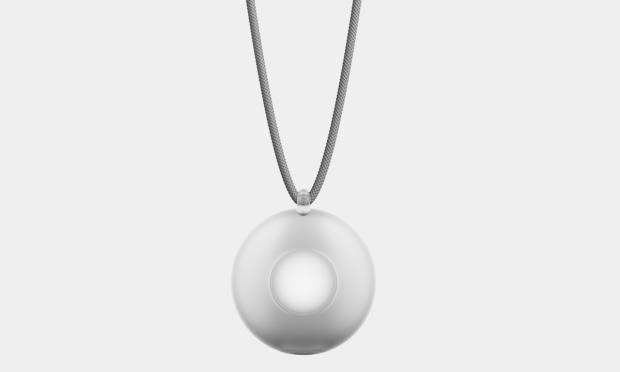
As the tech industry pushes toward more AI interactions, a new entrant in the wearable market is raising eyebrows and questions about the future of AI companionship. The “friend” pendant, a $99 AI-powered necklace set to launch in 2025, aims to provide companionship rather than just utility.
This always-listening pendant, which responds to voice prompts with text messages, is the brainchild of 21-year-old entrepreneur Avi Schiffmann. While it may seem niche, it joins a growing ecosystem of AI-powered wearable and handheld devices, each vying for a place in consumers’ daily lives.
“The concept is like all other smart wearables, AI-powered or not. It’s an imperfect solution,” Marty Meany, editor of tech review website Goosed.ie and a regular user of Meta’s AI-powered Ray-Ban sunglasses, told PYMNTS.
He pointed out potential design flaws in the friend pendant: “I can already see the issue here, likely being that the necklace looks like something MC Hammer would wear. It will probably end up being worn under your shirt/blouse — so what happens when it almost certainly overheats?”
Experts say AI wearables like the friend pendant could dramatically alter the retail landscape. These ever-present AI companions might soon whisper personalized product suggestions in your ear, guide you to deals based on overheard conversations, or nudge you toward impulse buys aligned with your mood.
It’s a potential goldmine of real-time consumer data for retailers, enabling hyper-targeted marketing and product development. But this intimate mesh of AI, commerce and daily life raises red flags about privacy and consumer autonomy.
PYMNTS previously reported that AI-powered wearables from companies like Google and Oura are transforming wellness, offering services ranging from personalized fitness coaching to mental health support.
The friend pendant isn’t alone in its quest to bring AI closer to our bodies. The Rabbit R1, a handheld AI assistant, can answer questions and even call a taxi. The Humane AI pin offers voice-controlled communication, language translation and photo analysis. Meanwhile, established tech giants are entering the fray, with Meta’s Ray-Ban smart glasses incorporating AI features for hands-free photography and audio recording.
Meany’s experience highlights the challenges these devices face.
“Take the AI-powered Meta Sunglasses that I drive [with] daily,” he said. “They are useless assistants when there’s no sun, I’m indoors, or traveling on the train.”
Despite limitations, Meany sees potential in the wearable AI market, provided companies can clearly define their product’s purpose.
“The potential here is huge, once companies work out their ‘why,’” he said. With the Meta Sunglasses, “I can record memories at a gig without having my phone out, annoying others and not being immersed in the gig itself. That’s a massive ‘why’ for smart sunglasses.”
Finding this “why” may prove challenging for the friend pendant and similar devices. Meany predicted a difficult launch: “Unfortunately, I can already predict the likely curve for the friend necklace. Negative press at launch because no one really knows why it exists, followed by negative opinion from the tech review industry because the ‘why’ is just incredibly weak.”
Despite these challenges, the friend device has secured $2.5 million in funding at a $50 million valuation, according to TechCrunch. This investment suggests that some in the technology and business communities see potential in friendly wearables, even if the perfect implementation remains elusive.
If these devices gain traction, the implications for commerce could be significant. AI companions have the potential to serve as always-on shopping assistants, offering personalized product recommendations based on overheard conversations and observed behaviors. However, this raises important privacy concerns that companies will need to address.
Other players in this space are also exploring commercial applications. The Oura Ring, for instance, focuses on health tracking but has the potential for personalized wellness product recommendations. The Token Ring offers contactless payments, combining wearable tech with financial transactions.
The success or failure of devices like friend could shape how major tech companies and retailers integrate AI companionship into their products and services. As Meany’s experience with Meta’s AI sunglasses shows, the key will be finding the right balance of functionality, practicality and purpose that resonates with consumers.